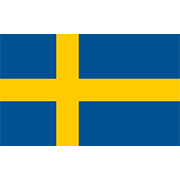Fiscal subject related
The Swedish Official Gazette has published Law No. SFS 2024:942, detailing significant amendments to the Value-Added Tax (VAT) Act. These changes are set to take effect on January 1, 2025. It refers to:
- Updated definitions: the law clarifies the definitions of taxable persons, taxable transactions, and economic activities within the VAT framework.
- Small business exemptions: new VAT exemptions have been introduced for small businesses with annual turnovers not exceeding 120,000 Swedish kronor (approximately US$11,279) domestically or 100,000 kronor (approximately US$9,398) within the European Union.
- Exempted transactions: the amendments provide VAT exemptions for intra-Union deliveries, export services, and transactions involving investment gold and periodical publications.
- Adjusted tax rates: a 12 percent VAT rate will be applied to the delivery and intra-Union acquisition of certain works of art, collectors’ items, and antiques.
- Input tax deduction conditions: the law specifies conditions under which input tax can be deducted, particularly for profit margin transactions.
- Administrative procedures: detailed guidelines have been established for administrative processes, including identification decisions, revoking exemptions, handling appeals, and issuing VAT-free invoices for exempt transactions.
These amendments aim to streamline the VAT system and provide clearer guidelines for businesses and tax authorities alike.
Other news from Sweden
New document was uploaded: E-commerce SE - Legal requirements
 Sweden
Author: Nikolina Basić
Sweden
Author: Nikolina Basić
The document explains Sweden’s fiscalization framework, covering mandatory cash register use, control units/systems, registration procedures, and the technical and operational requirements businesses must follow when recording sales and issuing receipts. It details how transaction data is secured via certified control units, how communication with the Swedish Tax Agency works, and what obligations apply regarding receipts, VAT rates, payment methods, audits, and penalties. Read more
Subscribe to get access to the latest news, documents, webinars and educations.
Already subscriber? Login


New document was uploaded: EV-chargers from the Fiscalization Perspective in Sweden
 Sweden
Author: Nikolina Basić
Sweden
Author: Nikolina Basić
This is a regulatory analysis / compliance guidance document focused on fiscalization and VAT treatment of EV charging in Sweden. Read more
Subscribe to get access to the latest news, documents, webinars and educations.
Already subscriber? Login


Sweden introduces Digital Audit era: Tax Authority gets real-time access to business records.
 Sweden
Author: Nikolina Basić
Sweden
Author: Nikolina Basić
Sweden is entering a digital audit era by granting the Tax Authority near real-time access to businesses’ accounting, VAT, and financial records through cloud-based systems. This reform marks a major shift toward proactive, digital-first tax compliance and fundamentally changes how audits are conducted. Starting in April 2026, Sweden’s tax administration will undergo one of i... Read more



Government of Sweden proposes a temporary VAT reduction on food.
 Sweden
Author: Nikolina Basić
Sweden
Author: Nikolina Basić
Sweden has proposed a temporary VAT reduction on food, lowering the rate from 12% to 6% to ease consumer costs under bill Prop. 2025/26:55. If approved, the reduced rate will apply from 1 April 2026 through 31 December 2027. In VAT legislation in Sweden, a new bill, Prop. 2025/26:55, has been introduced to temporarily lower the Value Added Tax (VAT) on foodstuffs from 12% to 6%. The proposal marks... Read more



Fisalization in Sweden: how to correct the wrong payment method recorded in the cash register
 Sweden
Author: Nikolina Basić
Sweden
Author: Nikolina Basić
We clariify if businesses have to issue a return receipt if a wrong payment method is recorded in a cash register? Read more
Subscribe to get access to the latest news, documents, webinars and educations.
Already subscriber? Login


Swedish Tax Agency Issues new amendments to Cash Register Regulations
 Sweden
Author: Nikolina Basić
Sweden
Author: Nikolina Basić
The Swedish Tax Agency has amended its cash register regulations (SKVFS 2025:8), effective October 1, 2025, updating rules on registration, malfunction reporting, and supervisory controls. Key changes include repealing certain provisions, requiring individual registration of each unit, and clarifying exemptions for customer-held devices. The Swedish Tax Agency has announced new amendments to its e... Read more



Sweden proposes a temporary VAT cut on food and bottled water starting in April 2026.
 Sweden
Author: Nikolina Basić
Sweden
Author: Nikolina Basić
Sweden’s Ministry of Finance has proposed cutting VAT on food and bottled water from 12% to 6% between April 1, 2026, and December 31, 2027, to ease household costs and support purchasing power. The measure, excluding alcohol and certain beverages, is aimed at countering inflation and awaits parliamentary approval. The Swedish Ministry of Finance has announced a proposal to temporarily reduce the... Read more


